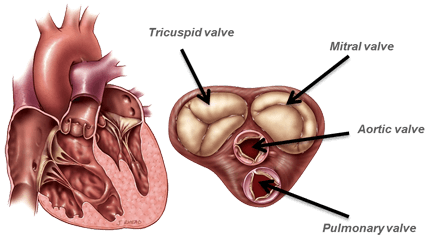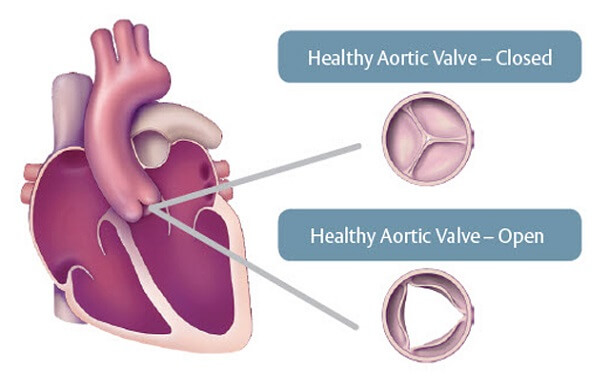How Much Does Aortic Valve Replacement Cost?
Aortic valve replacement is required if a person’s aortic valves are not functioning properly either due to a genetic issue, a valve disease, or something else. This procedure necessitates the use of a mechanical valve, a valve created with tissues extracted from a donor’s heart or animal valves.
Heart valves are structures in the heart that prevent blood from flowing backward. They guarantee that the blood flows in the proper direction. Working like a flap structure, if any valve is malfunctioning, the blood can go in the opposite direction, which will cause severe health problems.
A congenital heart abnormality, which is typically discovered at birth, is a common cause of heart valve difficulties, and surgery is frequently undertaken to repair the condition.
How much does aortic valve replacement surgery cost?
The cost of an aortic valve replacement surgery in the United States is usually between $50,000 and $130,000 without insurance. The total costs of a surgical aortic valve replacement can greatly vary depending on several factors, such as the location of the hospital, the type of the replacement valve, your overall health, and your insurance coverage. However, the average cost for the surgery in the United States is around $90,000.
The online website Placidway.com states that heart valve replacement or repair usually costs somewhere around $40,000 per valve, in the United States. But, keep in mind that aortic heart valve replacement is a much more complex surgery and will definitely increase the cost, as mentioned above. Also, if a patient needs multiple valve replacements, the costs will greatly increase. Without any insurance coverage, the cost can go up to $200,000 based on several major factors.
Medsolution.com outlined that if you choose to do this procedure overseas, the cost will be more affordable. As they stated, in the United States you can expect to pay around $80,000, while, in France for instance, the same surgery may cost around $40,000.
There are different costs when it comes to replacement surgery. Some members stated on the ValveRaplacement.org forum that their bill was somewhere between $120,000 and $140,000.
As we mentioned before, these costs are estimates based on different people’s statements. Every surgery is unique, based on your health, age, location, and type of replaced valve. We highly recommend contacting an expert in order to examine you and give you an accurate cost.
Aortic valve replacement surgery overview
The first important step before the transcatheter aortic valve replacement surgery (TAVR) is the preparation of the patient. Usually, one night before the open-heart surgery, the patient is required to be at the hospital to run some blood tests as well as other tests. Also, it is important not to eat after midnight.
 On the next day, when the patient undergoes the surgery, a sedative will first be administered in order to relax the patient. Following this, the patient will be brought to the operating room and given a general anesthetic. In order to perform the procedure in a safe way, the patient will be connected to a heart-lung bypass machine. Tubes are placed into the heart and major blood vessels in order to keep the blood away from the heart. So, the tubes will redirect the blood through the equipment, while the surgeon proceeds with the surgery.
On the next day, when the patient undergoes the surgery, a sedative will first be administered in order to relax the patient. Following this, the patient will be brought to the operating room and given a general anesthetic. In order to perform the procedure in a safe way, the patient will be connected to a heart-lung bypass machine. Tubes are placed into the heart and major blood vessels in order to keep the blood away from the heart. So, the tubes will redirect the blood through the equipment, while the surgeon proceeds with the surgery.
You might also like our articles on the cost of heart surgery, pectus excavatum surgery, or coronary angiography.
The next step will be an incision in the chest, in order to remove the damaged valve. Then, the surgeon will replace it with a new aortic valve, either biological or mechanical. Based on the complexity and how the procedure goes under the surgery, it can last between three to six hours.
Cleveland.org stated online that 80% of the patients choose a bioprosthesis for a procedure known as biological valve replacement. These types of valves are typically made of animal tissue and usually include some synthetic components to offer more assistance and enable the valve to be sewn in place.
However, there are also mechanical valves that are entirely composed of mechanical components. Generally, this valve is composed of two leaflets and a knitted fabric metal ring. The body accepts mechanical valves well since they are non-reactive.
For patients younger than 30 years old, surgeons usually perform the Ross method. This method implies the replacement of the damaged valve with a pulmonary homograft, in order to prevent the need for anticoagulants and blood-thinning medications, for the rest of their lives.
The average time of recovering after this type of surgery is usually around eight weeks. This is if there is no complication after the surgery. Prior to the surgery, in the first 48 hours, the patient is mechanically ventilated in an ICU, for attentive monitoring. Patients usually need a hospital stay of 10 days or so.
What are the extra costs?
In order to see if there is a need for surgery, patients have to take several blood tests, different types of examinations such as X-rays, and perform multiple doctor visits. Regardless of whether there is insurance coverage or not, the costs can get to thousands of dollars. This process is imperative before scheduling surgery.
An extra cost to consider is the surgeon fee. This fee is not included in the previously mentioned cost. So expect to pay $6,000 to $12,000 to work with a popular surgeon. We recommend contacting the financial office for more accurate costs. As previously said, the hospital where you choose to have the procedure may influence the final bill as well.
Also, physical and medical therapy may be needed. Based on the patient’s condition, the doctor may recommend numerous sessions of physiotherapy to teach the patient how to move correctly so that the incision is not damaged. Without any coverage, an average session costs $60 to $280.
There is a lifetime requirement for anticoagulant use for patients who had a mechanical valve replacement. Per month, the cost of a blood-thinning medication may be $20 to $230. This cost may vary depending on the brand and the insurance coverage. On the market, a well-known brand like Plaxiv is sold for around $220 per month. However, there are also generic medications, and for example, Warfarin can cost $25 per month.
For a good monitoring of your condition and your cardiovascular system, frequent blood tests may be required which will increase your budget.
How can I save on heart valve replacement costs?
Not having insurance coverage will greatly increase the costs. So, take into consideration contacting the hospital’s financial office for a payment plan. Depending on your financial situation or if the payment is made in full, discounts may be applied. Patients have stated that these discounts can go up to 40%.
As we mentioned above, having the surgery done outside the country, may enable you to save a great amount of money. For example, countries like France, India, and Mexico have several experts in heart surgery. If you choose to undergo surgery abroad, the health insurance will not cover you and your expenses. This is at your own risk.
Before proceeding with the surgery, contact your health insurance company to see what part of the cost is covered. On eHealthInsurance.com you can compare health insurance plans from different companies at no cost.



Leave a Reply
Want to join the discussion?Feel free to contribute!